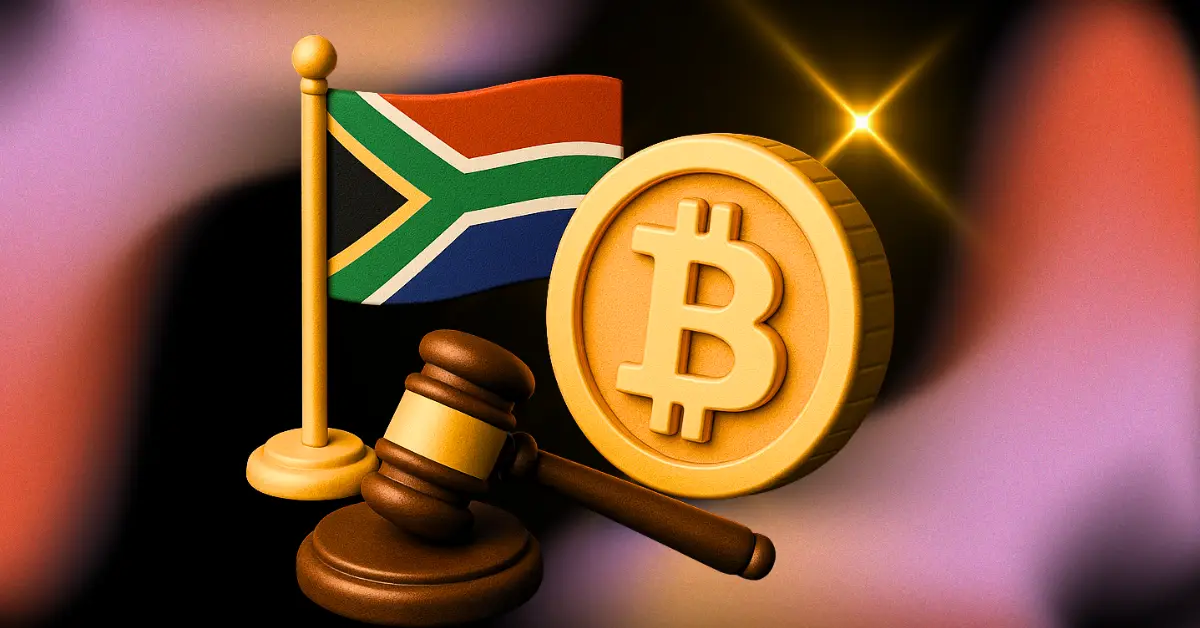
The South African Reserve Bank (SARB) has filed an appeal challenging a recent Pretoria High Court ruling, which criticized the use of outdated, apartheid-era legislation to regulate cryptocurrency. The central bank is pushing back against a legal loophole that could potentially allow unlimited funds to exit South Africa via crypto, a move SARB warns could undermine national financial security.
In a statement on June 2, the SARB argued that the High Court erred in a prior ruling that allowed Standard Bank to seize Bitcoin holdings belonging to clients. The court, SARB says, failed to recognize cryptocurrencies as either money or foreign currency, a critical omission in interpreting South Africa’s exchange control regulations.
The dispute stems from a case in May, where Standard Bank filed against SARB, the Minister of Finance, Nedbank, and the liquidators of Leo Cash and Carry (LCC). The bank sought to recover funds lent to LCC in 2022 before the company was placed under liquidation.
LCC was later flagged by SARB’s Financial Surveillance Department (FinSurv) after it was revealed the company transferred 4,400 Bitcoins (valued at R566 million) to Seychelles-based Huobi Global exchange. The SARB maintains this action violated South Africa’s foreign exchange control laws.
The Pretoria High Court, led by Judge Mandlenkosi Motha, ruled that Regulation 22C — introduced during South Africa’s apartheid era — was not applicable for cryptocurrency regulation in 2025. Motha criticized the use of outdated laws to govern modern financial technology.
However, the SARB strongly disagreed, asserting that Regulation 22C remains valid and empowers the Reserve Bank to block suspicious crypto transactions, especially when potential violations of exchange control laws are involved.
Harry Scherzer, a leading industry voice, says the SARB’s stance is flawed. He explained:
“It was relatively clear that the Reserve Bank made an error in the sense that it allows people to evade exchange control, which basically makes the whole of exchange control redundant. You can essentially take out as much money as you want as crypto and send it into dollars abroad, and I’m sure there are some people that did exactly that.”
SARB is appealing because the court ruled crypto isn’t “money” or “foreign currency,” creating a loophole for unlimited funds to exit South Africa via crypto, threatening financial security.
South Africa’s crypto stance is evolving. While SARB is appealing a ruling, crypto is legal to buy, and the government is working on regulating and integrating it.
In South Africa, crypto is taxed as an asset. Individual capital gains are subject to tax up to 18% (after a R40,000 exclusion), while trading income is taxed at marginal income tax rates.
Bitcoin, the world’s largest cryptocurrency, has been struggling lately to recover after falling from its…
XRP sentiment remains cautiously optimistic as Ripple’s strategic partner SBI Holdings unveiled plans to issue…
The broader crypto market has regained footing this week, with Bitcoin holding key levels and…
Robert Kiyosaki, the famous author of Rich Dad Poor Dad, has added another Bitcoin to…
Story Highlights The live price of the MANA crypto token is . Price predictions for…
Story Highlights The live price of the Near Protocol token is . Price predictions for…